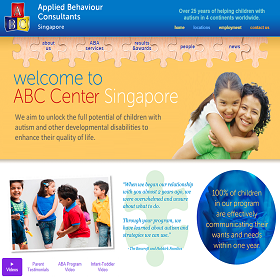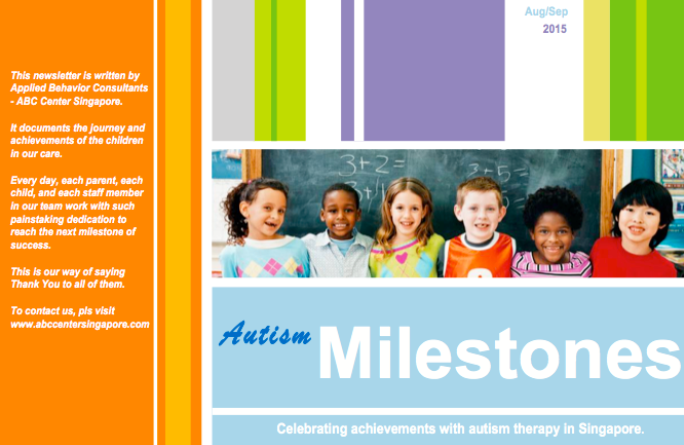
Among the challenges that parents face with children with autism, one of the most stressful is dealing with eating problems. These can result to children not getting the right nutrition, hence it is important to work on this quickly. Ms Hui Ling Loh, BCBA, Clinical Supervisor of ABC Center Singapore, talks about her experience on this issue, and what strategies can best help.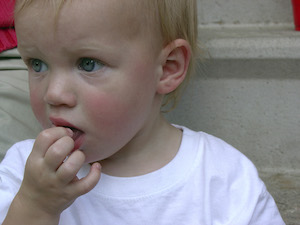
Is it common for children with autism to have eating problems?
HLL: I have seen quite a number of children with autism having issues on food selectivity. The food they prefer to eat can be very limited in variety and they can reject all other types of food. Some children just eat a certain texture of food — for example they only eat soft food, or only crunchy food. Some children prefer a certain taste only, like only wanting sweet food, for instance.
What causes food selectivity?
HLL: According to research, the causes of food selectivity are varied. It could be caused by digestive problems like constipation or reflux. It could be caused by sensory problems. Autism and a few other medical or genetic conditions can be linked to food selectivity as well.
At what age is it noticeable?
HLL: Many parents notice it as early as when their kids should start eating a variety of solid foods, which could be around the 12 month old period.
What is the downside of food selectivity?
HLL: The biggest downside is lack of nutrition. A child that is not on a balanced diet risks malnutrition. We have seen some children who just eat meat for instance — no vegetables nor fruits. The vitamins and minerals that these children get can be sorely lacking. This has to be worked on right away.
Do you handle many cases that involve food selectivity?
HLL: Here at ABC Center Singapore, we are working to increase food tolerance among a few children. There are some children who only eat soft food, some only on a liquid diet, even at an age when they should already be eating a variety of solids in different textures. We have some who only eat a certain type of pasta, or a certain type of fruit.
How do you help these children at ABC Center?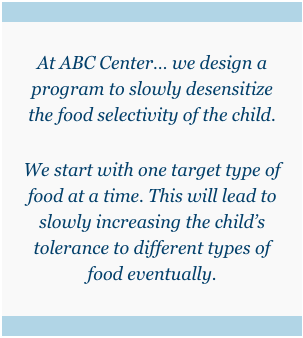
HLL: We first determine what food groups are missing in their diets. Then we discuss with the parents the list of food that we plan to introduce. We usually start with the most urgent to achieve a balanced diet as soon as possible.
We also have an indepth discussion with the parents on how they have been dealing with the food selectivity at home. We ask how often the parents attempt to introduce new food, and what they do if this is not accepted by the child.
After understanding this behavior history, we design a program to slowly desensitize the food selectivity of the child. We start with one target type of food at a time. This will lead to slowly increasing the child’s tolerance to different types of food eventually. At ABC Center, our results show that 100% of children make progress.
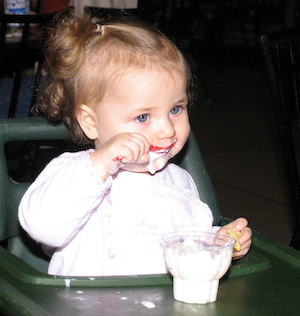 How can parents help in increasing the variety of food that their children eat?
How can parents help in increasing the variety of food that their children eat?
HLL: Parents need to be patient and persistent in introducing new food.
If the child refuses it, insist that the child tries at least one spoon (and reassure them that it is okay even to spit it out if they really don’t like it).
Or for children who are very young, at least show them new food, have it around and encourage the child just to touch it at the beginning.
Then the parent should praise the child for at least giving it a try. This will encourage the child to be more tolerant of trying new things.
Would it be important to also check with a medical doctor or any other professionals regarding this issue?
HLL: Definitely. When it comes to food sensitivity, it is important to check if there is a medical issue involved first and to rule this out. There could be digestive problems that result to an upset stomach for instance, that drives the problem.
Also, there could be chewing or sensory problems, which could be checked by a medical doctor or an occupational therapist.
However, if these are ruled out, then we need to use applied behavior analysis to increase food tolerance, and the younger we start, the better it is for the child.
Have you had successes in this area at ABC Center?
HLL: Yes, the team has done good work in this issue. I recall a particular case where the child had a very limited variety of accepted food, and would only drink milk, and not other types of soft food like porridge or soup.
We put together a feeding and eating history from the parents. Then we created our program to slowly desensitize the child’s food selectivity. We started with food that he used to eat but has since stopped.
Now he has learned to eat a variety of fruits, soup and other solid food. He is also no longer resistant to trying new food, and agrees to at least ‘try one spoon’ for new things. This has been good progress done by both the team here at ABC Center and the parents of the child at home. This is just one of our many success stories at ABC Center Singapore.
ABC CENTER SINGAPORE is part of the global network of Applied Behavior Consultants – a global entity that has been serving children with autism for over 25 years in 4 continents worldwide. Our early intervention services include 1 on 1 ABA therapy, as well as our EarlyPreps group preschool program.
Our EarlyPreps group preschool is the only ABA-based program within the Singapore MSF PPIP program where Singaporean/PR children who meet requirements may apply for financial subsidy.
To contact ABC Center (Applied Behavior Consultants) Singapore, please see www.abccentersingapore.com or call (65) 94236248
BACK TO ABC CENTER SINGAPORE HOME PAGE

 * children’s pictures are altered for confidentiality.
* children’s pictures are altered for confidentiality.

